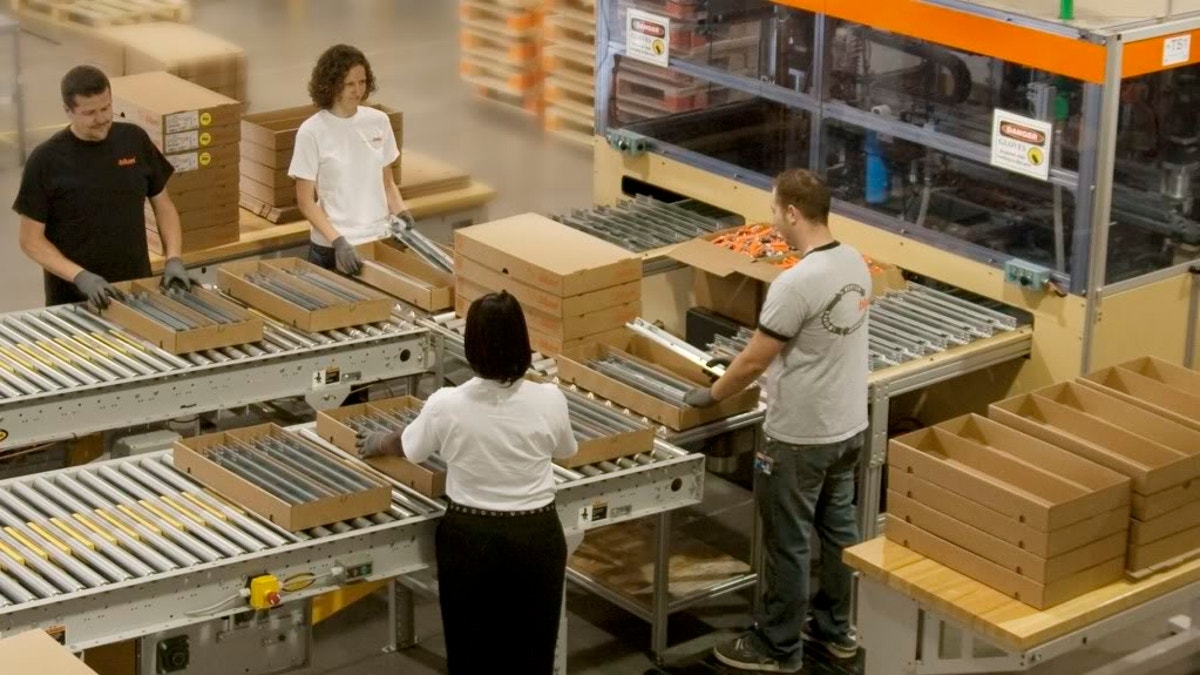
Bogotá, Colombia – Following the ratification of the Free Trade Agreement (FTA) between Colombia and the United States, an already powerful bilateral relationship has just gotten stronger.
The South American nation’s foreign market will now be open to many different U.S. products and other types of business. On top of that, it’s estimated that there will now be an increase of U.S. exports of $1.1 billion and a growth of imports from Colombia of about $487 million.
But Colombians who support the new pact see this as an opportunity for two main things: competition and job creation.
“It pushes companies here to be better,” says Diego López, operations manager for an importation/distribution company. “Now farmers and other industries who aren’t competitive have to increase their quality in order to do business here.”
While the lack of an agreement had allowed producers here to enjoy a period of self comfort, now the market has been expanded for consumers. But the FTA has also worked in another direction – giving popular industries here permanent access to the American consumer market through the gradual elimination of tariffs.
“By eliminating the trade barriers, Colombia will have an upward trend in terms of our trade and investment relations,” explains Ricardo Duarte, Colombia’s former vice minister of Industry. “And the U.S. will reverse the downward trend of Colombian traders preferring other markets at the expense of the U.S.”
Over the past several years, this Andean nation has found potential trade and investment, having already signed FTAs with Canada, the EU, and several countries in the region. As a result, the United States lost exportation opportunities.
For instance, Argentina increased its agricultural exports to Colombia, growing from $450,000 to $1 billion in 2010. In turn, the U.S. lost a $1 billion market share to other competitors who already had an FTA with Colombia.
So the new pact will allow these trends to change and increase the American/Colombian business partnership that makes these two allies so strong together.
With a high unemployment rate lingering around 10 percent and a strong hunger to further its developing infrastructure, another of Colombia’s main focuses for the new accord is job creation.
“It’s going to give a lot of people places to work,” explains Jhon Rojas, a director of product development in the importation industry. “That’s going to be very important for this country in the future.”
It’s argued that once the agreement is under way and the nations start increasing their business collaboration, manufacturers, farmers and service companies will create additional employment opportunities.
Additional jobs may also be made with more U.S. capital coming in.
“From an economic perspective, this agreement will overall create jobs, reduce poverty and secure future prosperity," says Mr. Duarte. “We have negotiated free trade agreements with the world with that objective.”
Though creating jobs has been a big focus of the new FTA, one of its opponents’ main concerns was the safety of union leaders and workers’ rights. Organizations like the AFL-CIO have expressed their apprehension to the agreement because of the murders of unionists and Colombia’s human rights record as well as the lack of labor rights for the nation’s workers.
But the government rejects those criticisms, stating that it has cleaned up its act by making major improvements and keeping a commitment to protect labor rights and prosecute the perpetrators of union-related violence.
Just last year, Colombia was excluded from the United Nations’ Labor Organization's black list of 25 nations who failed to comply with international workers' conditions.
“We have made great improvements but we still have a lot of work to do,” says Duarte. “And these true improvements were judged by an autonomous international organization.
“Furthermore, countries like Canada and Switzerland have already checked these issues and are very comfortable with free trade with our nation,” Duarte adds.
While Colombia and the U.S. enjoyed an economic relationship before the FTA, the importance of passing the agreement has not just been vital for economic reasons – it has also served as a way to boost diplomatic ties.
Failure of the pact would have further isolated American business in terms of exportation and Colombia would have continued to look elsewhere. Now that will all be avoided.
Still, with the accord in place, there will still be one more year of legal and institutional changes to be made here before it actually goes into full force, resulting in about a 7-year delay from when the agreement was originally signed in 2006 during the Bush administration to when it is actually fully enforced.
David Noto is the Latin American correspondent for Fox News Radio in Bogotá, Colombia.
Follow us on twitter.com/foxnewslatino
Like us at facebook.com/foxnewslatino








































